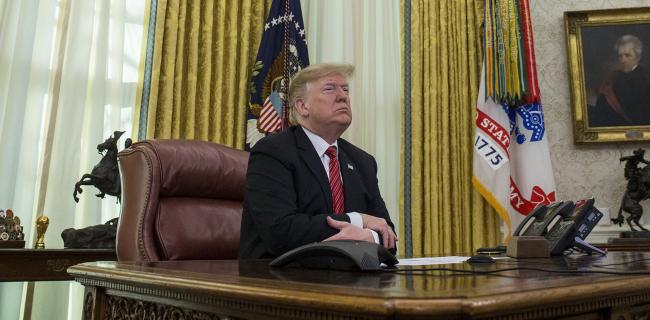(Bloomberg) -- Even as Donald Trump’s administration threatened to hit the European Union with another round of tariffs, some were quick to commend the U.S. president for his restraint and fair play in his latest fight with America’s closest ally.
“It’s a good sign,” Simon Lester, an associate director at the Washington-based Cato Institute, said in an interview. The Trump administration has been “sending some mixed signals about the World Trade Organization, but this action suggests they still value playing by the rules.”
The Office of the U.S. Trade Representative announced on Monday that it was preparing tariffs on $11 billion of imports from the EU because of subsidies the bloc provided to Airbus SE. The USTR added that it would wait to impose the duties because the “amount is subject to an arbitration at the WTO.”
This differs from Trump’s approach in hitting China with levies on $250 billion of its goods, which bypassed the WTO completely. The U.S. also took the unilateral action last year of imposing duties on foreign steel and aluminum, leading the EU to implement retaliatory tariffs on 2.8 billion euros ($3.2 billion) of U.S. imports.
Trump has called the WTO the “single worst trade deal ever made.” And while he would need congressional approval to follow through on a threat to leave, he’s already set in motion measures that could paralyze the organization’s ability to arbitrate disputes by next year.
“The administration’s views on the WTO are more nuanced than the headlines -- or the Twitter timeline -- would suggest,” Scott Miller, a senior adviser at the Washington-based Center for Strategic and International Studies, said. The USTR “sees the WTO as a useful forum for the U.S.,” he said.
But this softer approach to picking trade fights has reassured some that the U.S. may be willing to play within the rules of the multilateral system it so often criticizes.
“The U.S. has been very negative to the WTO dispute settlement mechanism,” Swedish Trade Minister Ann Linde said in an interview with Bloomberg. “Maybe if they now see that the mechanism is working, it could affect the U.S.’s view in a positive manner.”
